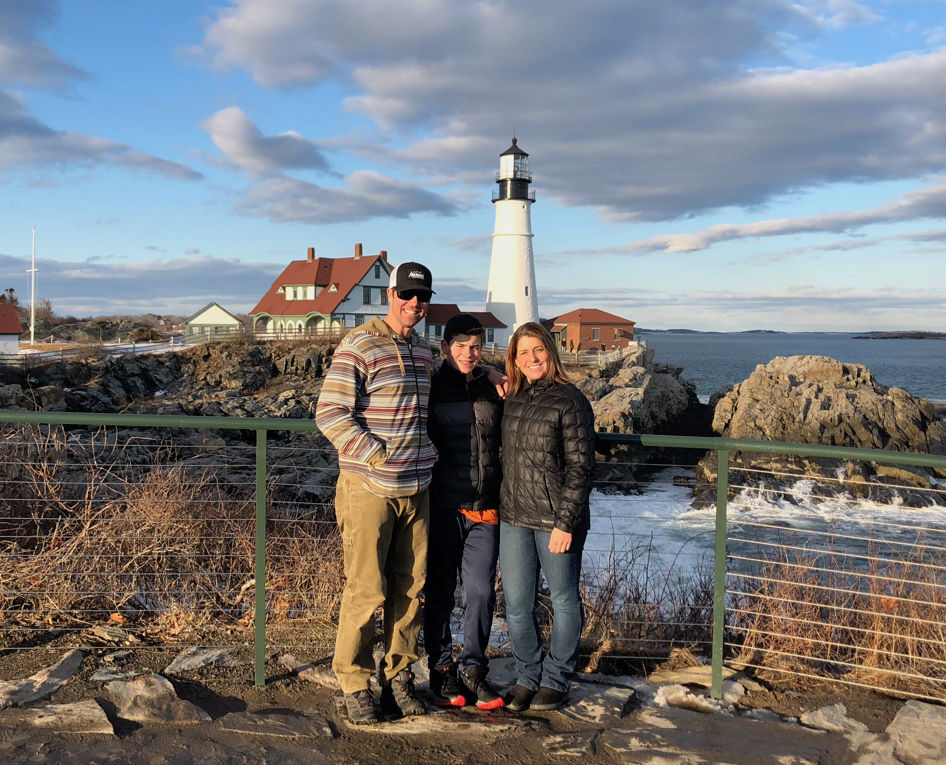Jenn Roark was only 33 when she was first diagnosed with Invasive Ductal Breast Cancer.
She felt a hard spot on her breast, short of a lump, but decided to be safe and go to her OBGYN to discuss it further. Her OBGYN referred her to a Breast Care Clinic and on October 31st, 2008, she was told of the incredibly life-changing diagnosis.
With a two-year-old son at the time, Jenn recalls the dizzying number of appointments she attended following her diagnosis that are all documented in a calendar she kept detailing every scan, test, and doctor visit from October 2008 until December 2009. During this time, Jenn underwent 6 rounds of chemotherapy and 6 weeks of daily radiation, as well as a double mastectomy and reconstruction surgery. A decade later, Jenn can reflect on the journey and all that she has learned since those months.
Fortunately for Jenn, it isn’t just her that kept meticulous documentation – her mother, who was also diagnosed with cancer, has also kept careful records throughout the years of as much family cancer history as possible. Understanding the risks and types of cancers present in her large family, Jenn was given the context she needed to investigate her own personal genetic make-up to search for answers.

Within a month of her Breast Cancer diagnosis, Jenn underwent genetic testing for BRAC1 and BRAC2, for which she was negative. However, Jenn’s curiosity and drive to learn more prompted her to enter a genetic study with the Cleveland Clinic. A year into the study Jenn learned that she was positive for a different inherited genetic mutation, known as PTEN. This discovery prompted other members of her family to be tested, revealing that both her mother and sister were PTEN positive. This news helped shed light on not only Jenn’s cancer diagnosis, but also the cancer’s that both her sister and mother had been diagnosed with as well. With this PTEN genetic mutation, Jenn was fascinated to learn about how her inherited DNA could have an effect on her cancer risk. In 2014, Jenn joined the Army of Women Study, MiraKind’s first study in collaboration with the Susan Love Foundation.
Following her participation in this study, Jenn opted to obtain her KRAS-variant results through MiraKind, which revealed that she was also KRAS-variant positive.
While Jenn’s oncologist and genetic counselor did not offer specific advice to her regarding her KRAS diagnosis, she remains very happy she went through the process to find out her KRAS status. Most importantly, she believes it has highlighted the incredible importance of disseminating more knowledge to health care providers in the field about this marker and others of its kind. She hopes having this knowledge will have an impact for generations to come. “Hopefully, there will be more information, not only for me, but also for those that come after me in the future,” she noted.
In the present, however, knowing what types of cancers that she may be at risk for has prompted Jenn to consult with her doctors and be proactively monitored. “There is only so much you can do for the future, but I’m going to do everything recommended,” she stated.
Jenn is an extraordinary example of the value in being your own self-advocate in the journey through cancer.
Through her commitment to learning more about her personal genetic make-up and disease risk, Jenn is putting together the puzzle pieces of an incredibly complex disease and serves as a reminder of the importance of MiraKind’s work to provide others like her with powerful information to better fight cancer.



Leave a Reply